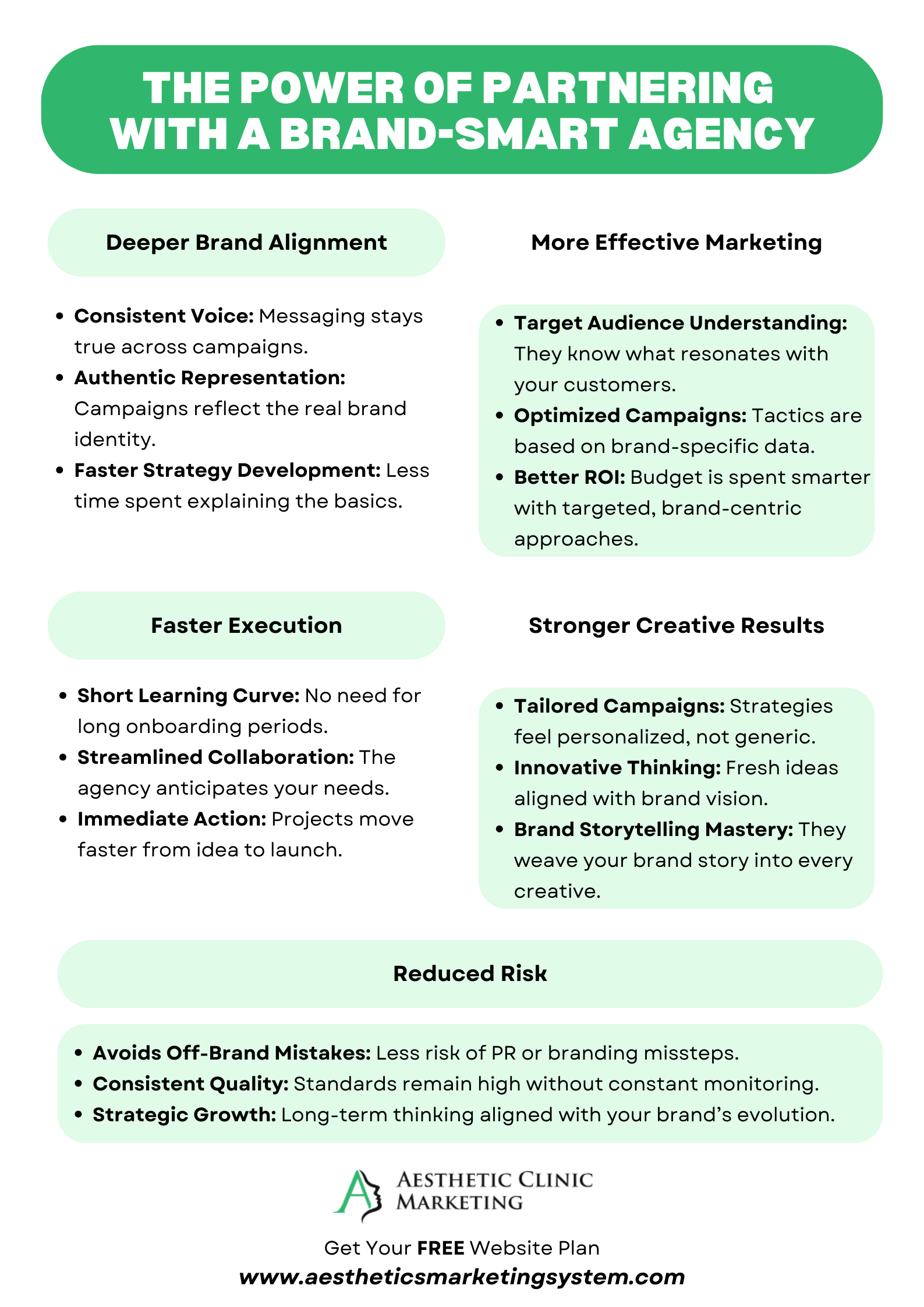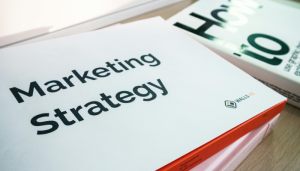Is a Marketing Agency Worth It?

Table of Contents
ToggleYou’re working hard to grow your business, and marketing is always on your mind—but so is your budget. Should you bring in a marketing agency or try to handle everything in-house?
If you’re stuck on that question, you’re not the only one. A lot of business owners feel unsure about when (or if) it’s the right time to get outside help.
Yes, agencies come with a price tag—but they also bring serious skills, fresh perspective, and time-saving support that could help you grow faster and smarter.
In this post, we’ll break down what a marketing agency can actually do for your business, when it makes sense to hire one, and how to know if it’s the right move for you.
Key Takeaways
Marketing agencies bring specialised skills and knowledge that can enhance your campaigns.
They provide access to advanced tools and technologies that may be too costly for an in-house team.
Outsourcing marketing can save time, allowing you to focus on core business functions.
Agencies can offer fresh ideas and perspectives that can rejuvenate your brand’s marketing efforts.
It’s important to evaluate your specific needs and budget before deciding on agency services.
Understanding The Value Of Marketing Agencies
Expertise And Specialisation
When you’re thinking about marketing, it’s easy to feel overwhelmed. There’s so much to know, from SEO to social media, and it’s constantly changing. That’s where marketing agencies come in. They bring a level of specialisation that most businesses just can’t replicate in-house.
They’ve got teams dedicated to specific areas, meaning they’re always up-to-date with the latest trends and best practises. It’s like having a team of experts on call, ready to tackle any marketing challenge you throw their way.
Access To Advanced Tools
Marketing isn’t just about creativity; it’s also about data. And to make sense of that data, you need the right tools. These tools can be expensive, and require training to use properly. Marketing agencies already have these tools in place, and they know how to use them effectively. This means you can get access to insights and analytics that would otherwise be out of reach. It’s like having a super-powered marketing dashboard at your fingertips.
Cost-Effectiveness Over Time
Hiring a marketing agency might seem like a big expense upfront. But when you compare it to the cost of hiring a full in-house marketing team – salaries, benefits, training, tools – it can actually be more cost-effective in the long run. Plus, agencies are results-driven.
They’re focused on getting you a return on your investment, so you’re not just spending money, you’re investing in growth.
Think of it this way: a marketing agency is like a strategic partner. They’re not just doing tasks; they’re helping you achieve your business goals. And that’s an investment that can pay off big time.
Evaluating Your Business Needs
Before you even think about hiring a marketing agency, it’s vital to take a good, hard look at your own business.
What are your strengths?
Where are you struggling?
What do you actually need help with?
Jumping in without this self-assessment is like setting sail without a map – you might end up anywhere, and probably not where you wanted to go.
Identifying Marketing Goals
What do you want to achieve? Seriously, what specifically do you want? More sales? Better brand awareness? A bigger social media following? Vague goals lead to vague results.
It’s not enough to say “I want more customers.” You need to define who those customers are, where to find them, and how you’ll measure success. For example:
Increase website traffic by 20% in the next quarter.
Generate 50 qualified leads per month through content marketing.
Improve brand sentiment on social media by 15% within six months.
Assessing Internal Resources
Do you have a marketing team already? What are their skills? What are their limitations? Be honest. Maybe your team is great at social media but struggles with SEO. Or perhaps they’re swamped with day-to-day tasks and don’t have time for strategic planning.
Understanding your internal capabilities will help you identify the gaps an agency can fill. Don’t assume an agency will automatically replace your existing team; think of them as an extension of it.
Determining Budget Constraints
How much can you realistically afford to spend on marketing? It’s tempting to go all-in, but it’s better to start small and scale up as you see results. Be clear about your budget from the outset.
This will help you narrow down your agency options and avoid any nasty surprises down the line. Remember, cheapest isn’t always best. Consider the long-term return on investment, not just the initial cost.
It’s easy to get caught up in the excitement of potential marketing wins, but a clear understanding of your business’s current state is paramount. This involves a candid evaluation of your goals, resources, and financial limitations. This groundwork will ensure that any partnership with a marketing agency is built on a solid foundation, leading to more effective and sustainable results.
The Benefits Of Partnering With An Agency

So, you’re thinking about getting a marketing agency on board? It’s a big decision, but it can really pay off. Let’s look at some of the good stuff that comes with partnering with an agency.
Fresh Perspectives And Creativity
It’s easy to get stuck in a rut when you’re working on your own business day in, day out. A marketing agency brings a fresh pair of eyes and a whole load of new ideas to the table. They’ve seen what works (and what doesn’t) across different industries, and they can apply that knowledge to your business.
Plus, agencies often have brainstorming sessions with multiple people, which can lead to some seriously creative campaigns that you might not come up with on your own. It’s about injecting some new life into your marketing.
Consistent Brand Messaging
Keeping your brand consistent across all platforms can be a real challenge, especially when you’re juggling a million other things. An agency can help you create and maintain a consistent brand message, ensuring that your business is always presented in the best possible light.
This means everything from your website and social media to your email marketing and advertising will have a unified look and feel. It’s about building trust and recognition with your audience.
Time Savings For Core Business Activities
Let’s be honest, marketing can be a massive time sink. From creating content and managing social media to analysing data and running campaigns, it all takes time. Hiring an agency frees you up to focus on what you do best: running your business.
Think of all the hours you’ll save not having to worry about the ins and outs of marketing. You can concentrate on the big picture, like perfecting your products or services and growing your business. It’s about working smarter, not harder.
Outsourcing marketing can save you money, and more importantly, time. This allows you to focus on the core aspects of your business, leading to overall growth and success.
Potential Drawbacks To Consider
While partnering with a marketing agency can bring many advantages, it’s important to be aware of the potential downsides. It’s not always sunshine and rainbows, and being realistic will help you make the best decision for your business.
Let’s look at some things you should keep in mind.
Understanding The Costs Involved
One of the most significant considerations is the financial investment. Marketing agencies are businesses, and their fees can sometimes be a shock. It’s easy to focus on the potential returns, but you need to be realistic about whether the cost fits within your budget.
Make sure you understand the fee structure, what’s included, and what isn’t. Unexpected costs can quickly eat into your budget, so transparency is key.
Lack Of Industry-Specific Experience
Not all agencies are created equal. Some might have a broad range of experience, while others specialise in specific industries. If your business operates in a niche market, finding an agency with relevant experience can be a challenge.
An agency that doesn’t understand your industry might struggle to create effective campaigns, leading to wasted time and money. It’s worth doing your homework and asking about their past work with similar businesses.
Managing Client Priorities
Agencies often work with multiple clients simultaneously. This means your business might not always be their top priority. It’s important to have clear communication channels and expectations from the outset.
You need to be confident that the agency can dedicate enough time and resources to your account to achieve your goals. If you feel like you’re constantly chasing them for updates or attention, it might be a sign that the relationship isn’t working.
It’s important to remember that no partnership is perfect. Open communication and a willingness to address challenges are essential for a successful relationship with a marketing agency. By being aware of these potential drawbacks, you can take steps to mitigate them and ensure a more positive outcome.
How To Choose The Right Agency
Evaluating Agency Experience
First things first, have a look at what they’ve actually done. Don’t just take their word for it. Ask for case studies, examples of past campaigns, and see if they’ve worked with businesses similar to yours.
Experience in your specific industry is a massive bonus, but not always essential. Sometimes a fresh perspective from outside your bubble can be just what you need. If they’re cagey about showing you their work, that’s a red flag.
Assessing Client Testimonials
What are other people saying about them? Client testimonials can be gold dust, but take them with a pinch of salt. Agencies will naturally cherry-pick the best ones. Look for common themes – do clients consistently praise their communication, their results, or their creativity?
Dig a little deeper, see if you can find independent reviews or even reach out to some of their past clients directly. A quick search online can reveal a lot.
Understanding Service Offerings
What exactly are they offering? Do they specialise in social media, SEO, content marketing, or a bit of everything? Make sure their skillset aligns with your needs. Don’t be afraid to ask them to explain their processes in plain English – if they can’t, that’s not a great sign.
Also, think about scalability. Can they grow with you as your business expands? It’s better to find an agency that can handle all your marketing needs in the long run, rather than having to switch agencies every few years.
Choosing a marketing agency is a big decision. Take your time, do your research, and don’t be afraid to ask tough questions. The right agency can be a game-changer for your business, but the wrong one can be a costly mistake.
Measuring The Success Of Your Investment
How do you know if it’s actually working? It’s not just about gut feelings; it’s about having solid data to back up your investment. Let’s look at how to measure the success of your marketing agency partnership.
Setting Clear KPIs
First things first: Key Performance Indicators (KPIs). What are you hoping to achieve? More website traffic? Increased leads? Higher sales? You need to define these goals upfront.
Without clear KPIs, you’re essentially driving without a map. Make sure your KPIs are SMART: Specific, Measurable, Achievable, Relevant, and Time-bound. For example, instead of “increase website traffic,” aim for “increase website traffic by 20% in the next quarter”.
Here are some common KPIs to consider:
Website traffic (overall and from specific sources)
Lead generation (number of leads, cost per lead)
Conversion rates (website visitors to leads, leads to customers)
Sales revenue (attributable to marketing efforts)
Social media engagement (likes, shares, comments)
Regular Performance Reviews
Don’t just set your KPIs and forget about them. Schedule regular performance reviews with your agency. This isn’t about micromanaging; it’s about staying informed and ensuring everyone is on the same page.
These reviews should be a two-way street. The agency presents their findings, and you provide feedback and insights from your perspective. Discuss what’s working, what’s not, and what adjustments need to be made. Think of it as a collaborative effort to optimise your marketing strategy.
Adjusting Strategies Based on Results
Finally, be prepared to adapt. The marketing landscape is constantly evolving, and what worked last month might not work this month. If your KPIs aren’t being met, don’t be afraid to make changes.
This could involve tweaking your target audience, refining your messaging, or even trying entirely new channels. The key is to be data-driven and agile. Use the insights from your performance reviews to inform your decisions and ensure you’re always moving in the right direction.
It’s important to remember that seeing results from marketing efforts takes time. Don’t expect overnight miracles. However, with clear KPIs, regular reviews, and a willingness to adapt, you can ensure that your investment in a marketing agency is paying off in the long run.
Long-Term Relationships With Agencies
It’s not just about the initial project; it’s about building something that lasts. A good agency partnership is like a good friendship – it gets better with time. Let’s explore how to make that happen.
Building Trust And Communication
Open and honest communication is the bedrock of any successful long-term relationship with a marketing agency. Regular check-ins, transparent reporting, and a willingness to share both successes and failures are all essential.
Think of your agency as an extension of your own team. Make sure you’re both on the same page, understanding each other’s goals and challenges. This means setting clear expectations from the start and maintaining a consistent dialogue throughout the partnership.
Adapting To Changing Business Needs
Businesses evolve, and so should your marketing strategies. A long-term agency partner should be able to adapt to your changing needs, whether it’s a shift in target audience, a new product launch, or a response to market trends.
This requires flexibility, a proactive approach to identifying opportunities, and a willingness to experiment with new tactics. It’s about having an agency that doesn’t just execute a plan but actively contributes to your business growth.
Leveraging Ongoing Support And Insights
One of the biggest advantages of a long-term agency relationship is the ongoing support and insights they can provide. They’re not just there to run campaigns; they’re there to help you understand your customers, track your performance, and make informed decisions about your marketing investments.
This might include:
Regular performance reports with actionable recommendations
Market research and competitive analysis
Strategic planning sessions to align marketing efforts with business goals
Access to a team of specialists with diverse skills and experience
By viewing your agency as a strategic partner rather than just a service provider, you can unlock a wealth of knowledge and support that can drive long-term success.
Conclusion
The short answer: it can be—if it fits your goals, budget, and stage of growth.
A good agency brings expertise, fresh ideas, and extra hands to help you do more with your marketing, without stretching your team thin. But it’s not a one-size-fits-all solution. It’s about finding the right partner who understands your vision and knows how to get you there.
Take your time. Ask the right questions. And remember: the best investment is the one that helps your business grow with clarity, confidence, and results.
Frequently Asked Questions
What are the main benefits of hiring a marketing agency?
Marketing agencies bring expert knowledge, creative ideas, and the latest tools to help your business grow. They can save you time and ensure your marketing is consistent and effective.
How do I know if my business needs a marketing agency?
If you have specific marketing goals but lack the internal resources or time to achieve them, it may be a good idea to consider hiring an agency.
What should I look for when choosing a marketing agency?
Check their experience, read client reviews, and understand the services they offer to make sure they fit your needs.
Are there any downsides to working with a marketing agency?
Yes, there can be costs involved, and some agencies may not have experience in your specific industry. It’s important to find one that understands your business.
How can I measure the success of my investment in a marketing agency?
Set clear goals and key performance indicators (KPIs) to track progress. Regular reviews will help you see if the agency is achieving the desired results.
How can I build a long-term relationship with a marketing agency?
Good communication and trust are key. Be open about your needs and feedback, and adapt together as your business changes.








